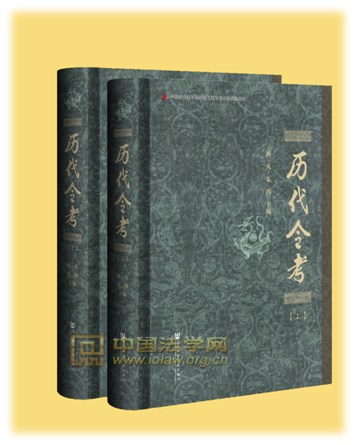Yang Yifan and Zhu Feng (eds.), A Textual Research on Imperial Edicts in Various Dynasties in Chinese History, Beijing: Social Sciences Academic Press, 2017.
In ancient China, imperial edicts were the various orders given in the name of the emperor or the monarch. They had a unique function in the construction of the legal system in ancient China that could not be replaced by any other form of law. They regulated every basic administrative institution, had relatively strong stability, and therefore were the “backbones of the legal system in ancient China”. Various separate edicts had the characteristics of being targeted and flexible. Rulers could adjust social and economic relations by issuing edicts in light of changing situation and emerging new problems. Imperial edicts were the legal sources of codes, laws, and regulations in ancient dynasties. Imperial edicts were far larger in number than any other form of law and played an important role in every aspect of state administration and social government in various dynasties in Chinese history. Since most imperial edicts before Ming Dynasty had been lost and those in the Ming and Qing dynasties are too large in number, the study of ancient imperial edicts has always been a difficult area in the field of legal history in which there are few researchers and even fewer insightful research results. Today, the study of legal history in China is in an important turning point and legal historians are faced with the major historical mission of rediscovering Chinese legal history and promoting the scientific the study of Chinese legal history. The study of imperial edicts is the key to revealing the whole picture of the legal system in ancient China. This book is a collection of representative results of research on imperial edicts in ancient China achieved by legal historians in Mainland China, Taiwan, and Japan. Consisting of five parts, it is the first systematic textual study of imperial edicts in ancient China.



